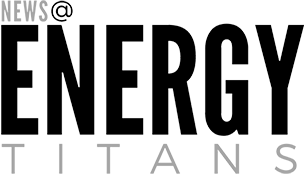Hot rock batteries are coming to Europe — soon
Unlock the Editor’s Digest for free
Roula Khalaf, Editor of the FT, selects her favourite stories in this weekly newsletter.
For investors in new decarbonisation technologies, there is one question that trumps all others. When will they become competitive with existing fossil fuel alternatives?
Solar and wind power have crossed the line; electric vehicles are close. The next candidate for this coveted position is the heat-based battery for plants and factories.
Such electro-thermal installations, variously made of rocks, bricks and other materials heated with an electric coil, aim to solve one of the energy transition’s largest and least talked-about problems. Delivering high temperatures — anything from 100 to 1,500 degrees — to make food, beverages, paper, chemicals and a host of other materials accounts for about a quarter of current fossil fuel consumption globally. This is also 20 per cent of carbon emissions.
Potential solutions, such as burning hydrogen or capturing carbon, are almost by definition more expensive than existing gas-fired boilers. So is using electricity directly: wholesale prices in the UK are around £60/MWh, almost three times the cost of natural gas.
That is now changing. Advances in heat pumps, which get over the cost hurdle by delivering two to three times the energy they need to run, make them a candidate for temperatures up to 200C. Beyond that, electro-thermal batteries lead the field.
Their selling point is that they can heat up bricks and such using the cheapest six hours of electricity in any given day. These can soak up the midday glut in southern European solar power, or a midnight excess of northern European wind. Then these batteries discharge heat over the next 18 hours.
Today, that would cut perhaps 30 to 40 per cent off the cost of electricity from wholesale prices. As more renewables enter the mix, midday prices might fall to zero or even negative.
On top of that, bricks and rocks are cheap — costing perhaps 15-20€/MWh compared with electro-chemical batteries at €150/MWh — and lose very little energy in the process. They are already competitive in Spain. Portuguese utility EDP last week joined up with San Francisco-based hot-brick maker Rondo to pitch this to clients across Europe.

There are still hurdles to clear. Today’s heat batteries only reach 400 degrees, according to a report by Systemiq, although some manufacturers say they can go to 650 degrees heating with steam. The lower limit would lop off around half of the addressable market.
Meanwhile, much of Europe has been saddled with an electricity-pricing mechanism that does not pass on the full benefits of cheap peak renewable production and lower grid congestion. But this is changing. Thus the business of hot rocks already has a solid future.
camilla.palladino@ft.com



